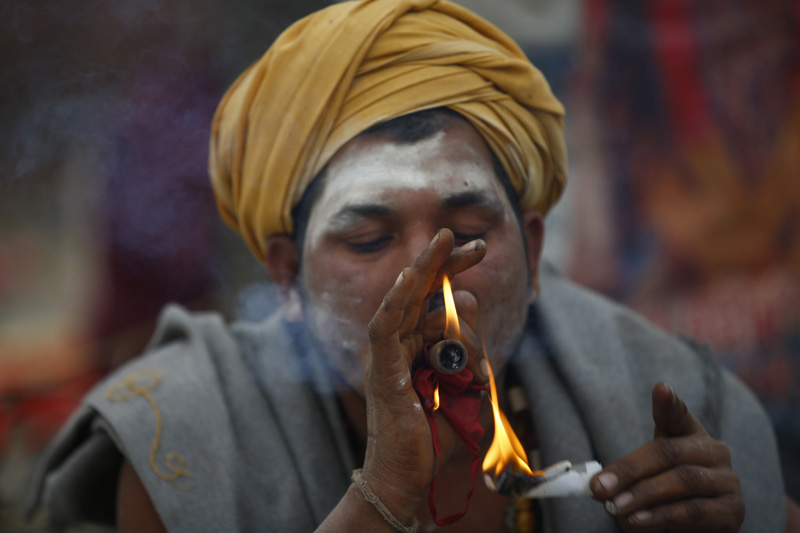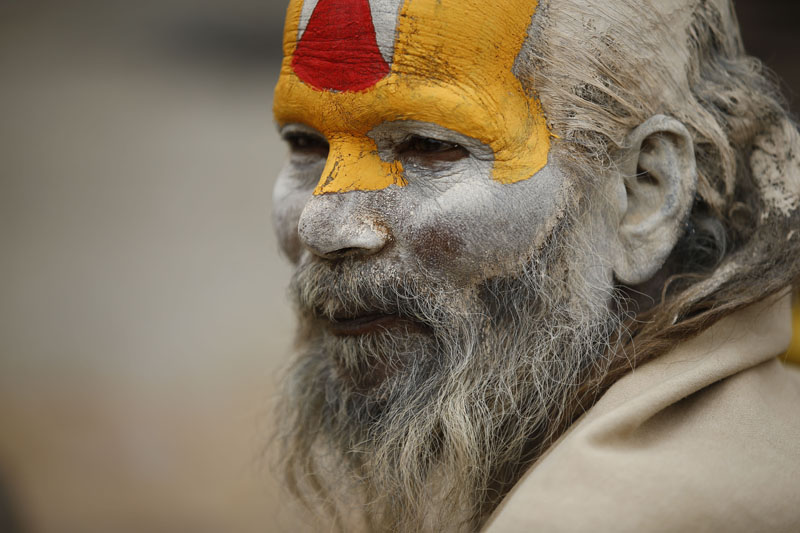Babas congregate for Mahashivaratri at Pashupatinath
KATHMANDU: On the eve of the Mahashivaratri festival, which falls today, Sadhus and Babas have started congregating at Pashupatinath temple area.
Thousands of Shiva devotees, also called babas, from around the country and various parts of India visit Pashupatinath temple every year and stay in various locations in and around the temple area.

Office of the Pashupati Area Development Trust has said that around 4,000 babas will probably participate in the festival this year, slightly larger in number than the previous years. The PADT office and Guthi Sansthan are responsible for providing food, shelter, firewood to create holy fire called dhuni, and blankets to the babas.
As per tradition, Guthi Sansthan and PADT jointly provide them Rs 200 to Rs 2,000 according to their grades. The babas who come to pay homage to Lord Shiva during Mahashivaratri are provided certain amount of money at a formal farewell ceremony before they return to their own places. Guthi Sansthan claims it provides 5,000 cubic feet firewood for dhuni, which will keep the babas warm during nights.
According to officials of Guthi Sansthan and PADT, they are spending Rs 700,000 and Rs 500,000 respectively to provide money known as dakshina to the babas.
According to Guthi Sansthan Information Officer Saroj Thapaliya, babas are ranked into five grades -- Lalmohariya, Mahantha or Mathadhis, Bhesdhari, Sanyasi and Digambara. The ranking of babas is recognised on the basis of the group they represent called akhadas.
One can view scenes of sadhus with their ash-smeared faces puffing on cigarettes mixed with marijuana in Pashupati and Shiva shrines. However, the number of babas smoking marijuana in the temple area is comparatively low this year than previous years.
The PADT had declared Pashupati area marijuana-free zone on January 29, stating that it can also check and arrest babas if they are suspected of selling cannabis to visitors.
Inspector Jogindar KC, in-charge of Pashupati area said that the decision to make Pashupati marijuana-free zone has prevented young people from smoking marijuana in the area.
“We are working to control visitors who gather around babas in the hope of buying marijuana this year, and we have even requested babas not to share or sell the illegal drug with visitors,” inspector K C said.
A writ petition was also filed at the Supreme Court demanding that Naga babas (Naked babas) be banned from performing obscene acts. The petitioner has argued that Naga babas violated public morality, but due to lack of time, hearing on the case was not conducted yesterday.
Similarly, a committee of the Shiva shrine Doleshowar Mahadev at Bhaktapur, has issued a press release stating that they are expecting 500 babas in the temple. Doleshowar has become famous in recent years as the head of Kedarnath, a revered Shiva shrine in India. The committee says it gives Rs 500 to Rs 1,100 dakshina to the babas.
SEE ALSO:






